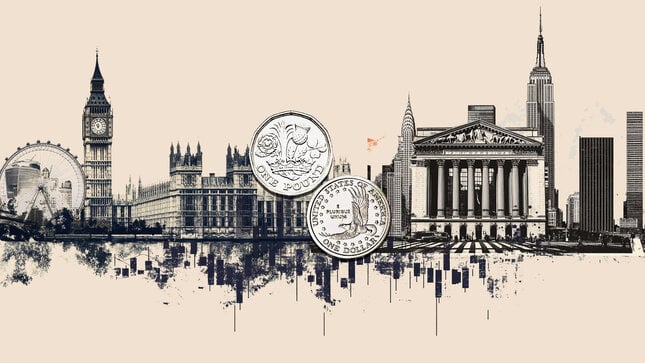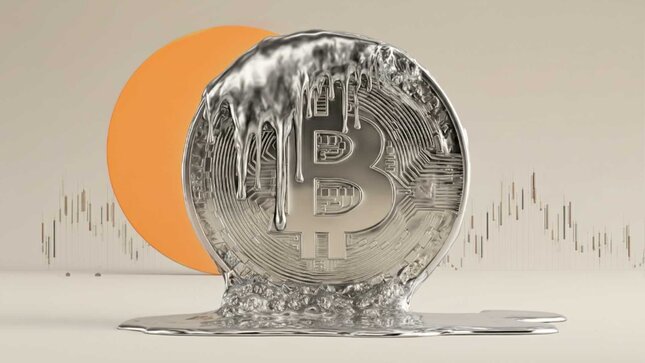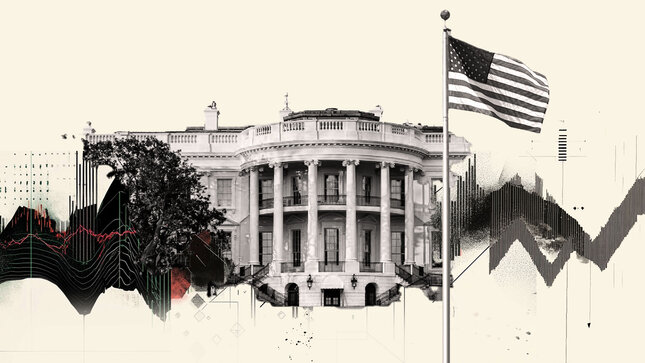Quotable "We do not see things as they are but as we are." --Samurai Trader's Maxim Number One My all-time favorite currency guy is John Percival (now retired and living comfortably in the French countryside I understand). My respect for his insights over the years is immense. John has likely forgotten more about currency trading than most people will ever know. In his newsletter, Currency Bulletin, and book, The Way of the Dollar, John was emphatic about the "four knows:"
1. Know your reasons
2. Know your risks
3. Know your time frame
4. Know yourself
Books have been written on each of these four knows, some good, others not so (I have list of my favorite investment books posted on my site here if interested).
Many believe if your reasons for a trade are right you have most of the trading game conquered. But that is not true. It's not true because the market can find all kinds of ways to take your money even if you reasons for a trade are right.
Of the "four reasons," John warns the last one on the list, know yourself, is the hardest of them all to know.
After years of playing at this game, making some great trades along with many excruciatingly bad ones, having some good runs met by nasty drawdowns, I couldn't agree more with John: this game hinges ultimately on knowing yourself.
I'd like to flesh this out a bit more with Luke's help...
I have attempted teaching forex in a course format. I am not sure I was successful. The more I trade the more skeptical the word "teach" is to me. This is not to say there are not some great resources available; it is to say a teacher one cannot really understand how a student internalizes the market. It is always personal. And how one reacts, how one recovers, how one rebuilds enough confidence to get back in the game is always personal. It is the most critical piece for long-term trading success and really cannot be taught in the conventional sense (though of late, some trading coaches focusing on psychology, and mind-body, are providing enormous benefit to traders—Denise Schull, of Rethink Group, is my favorite; but there are many good ones).
The best single piece of advice for a trader is this; get your mind right.
We spend so much time working on systems and analysis and research and levels, which isn't a bad a bad thing. It's the blocking and tackling of trading. But after we have all that, coupled with years of experience, we begin to realize at some point this trading thing becomes a very complex game of the mind. I.E. the "know yourself" to which Mr. Percival refers, which is synonymous with "getting your mind right." And the best palpable example I know of "getting your mind right" comes from the movie Cool Hand Luke, which starred Paul Newman and a host of great supporting actors.
Newman is brilliant in this movie. I think the best he ever was. Take a moment and watch this powerful scene (link below). It is when Luke is caught again trying to escape from prison. The warden told Luke earlier in the film he needed to get his mind right, after making Luke dig holes all day in the hot sun, and having the guards beat him a bit, the warden tries again.
As you watch this clip (link below), place yourself in the role of Luke after being slammed by Mr. Market (the boss). Maybe a market loss is less painful physically than being beaten by prison guards, but during big drawdowns (and questioning everything you thought you learned over the years) it's questionable whether the psychological pain can be worse.
And as you watch this film clip, ask yourself these things:
"Why do we add to losers and punish ourselves and our pocketbooks with the most grievous of investment errors? Why is it easier to add to a mistake than correct one? "The winning positions are cashed in too early. We get a few points of profit and congratulate ourselves for being so smart. Then we watch as the stock or commodity continues to climb, climb, and climb. Why didn't we buy more as the position proved itself a winner? We know the rules, but something inside of us wins over. What is it?"
Edward Allen Toppel, Zen in the Markets
Luke unfortunately didn't learn the lesson about who is the boss. He paid for it with his life. When we don't learn the market is the boss, we pay for it with our money and emotional damage for the most part.
"In reality the market puts us in a contest with ourselves. Until we let go of the false ideas of what makes the market tick and simply respond as the market unfolds, we will continue to be punished, "writes Toppel.
Mr. Market does whatever he wants, whenever he wants to. If we think we can forecast what the boss is going to do, that is our first mistake. Accepting our inability to forecast, no matter how good our edge may be, is why we should think of trading as nothing more than probability bet; and probability bets includes a random distribution of wins and losses. Accepting this viscerally is the first step in getting your mind right, to paraphrase the late great Mark Douglas. So, what does the crowd believe the boss is telling us now?
-
Commodities is not the place to be; they are going a lot lower from here.
-
The US dollar is going higher for sure.
-
Continued deflation is a certainty.
-
China is in real trouble.
-
The Fed will cut at least two more times.
-
Stocks will rally to new highs before a correction.
All plausible. All rationale. But...
-
Markets are always biased in one direction or another.
-
Markets can influence the events that they anticipate.
Alchemy of Finance
A part of getting your mind right is understanding all market beliefs are based on uncertainty. One of my pet peeves: "Markets hate uncertainty." The most asinine sentenced ever uttered. If there were not uncertainty you would never have a market to begin with.
If you believe humans cannot forecast events, then you must logically conclude there is a decent probability seemingly plausible rationales will be proven wrong with random consistency (oxymoron?). Therefore, there will always be a flawed rationale in the market to exploit; assuming you remain open, assuming you know yourself:
"To protect ourselves from painful information at the conscious level, we rationalize, justify, make excuses, willfully gather information that will neutralize the significance of the conflicting information, get angry (to ward off the conflicting information), or just plain lie to ourselves.
"At the subconscious level, the pain-avoidance process is much more subtle and mysterious. At this level, our minds may block our ability to see other alternatives, even though in other circumstances we would be able to perceive them. Now, because they are in conflict with what we want or expect, our pain avoidance mechanisms can make them disappear (as if they didn't exist). To illustrate this phenomenon, the best example is one I have already given you: We are in a trade where the market is moving against us. In fact, the market has established a trend in the opposite direction to what we want or expect. Ordinarily, we would have no problem identifying or perceiving this pattern if it weren't for the fact that the market was moving against our position. But the pattern loses its significance (becomes invisible) because we find it too painful to acknowledge."
...It is not until we are either out of the trade or out of danger that the trend becomes apparent, as well as all the opportunities to make money by trading in the direction of the trend. This is a perfect example of 20-20 hindsight. All the distinctions that would otherwise be perceivable become perfectly clear, after the fact, then there is no longer anything for our minds to protect us from."
Mark Douglas, Trading in the Zone
So, open your mind to the alternative scenarios.
"If we want to understand the real world (and its impact on price), we must divert our gaze from a hypothetical final outcome and concentrate our attention on the process of change that we observe all around us," wrote George Soros in his classic, Alchemy of Finance: Reading the mind of the market.
The market is loaded to the gunnels with feedback loops, flows of money underneath the surface we don't see, moving for reasons we don't know or understand. This is a continuous process of change. It's a dynamic system and why forecasting is a mug's game. But remember, you don't need to know what is going to happen to make money in the market, as Douglas tells us. You need only exploit your edge (personalized trading system) which skews the probabilities just slightly in your favor over time. and couple this with disciplined money management techniques.
Two things I think flow from this:
1) Price action focus is how the market talks and should be the first clue; and
2) Price movement requires real people to move real money. Thus, price action is determined not by real world events alone; but instead how these events playout against the backdrop of expectations, beliefs, and flawed forecasts of market players. This is precisely why surprise moves prices the most.
This process of price change is not a straight line; there is an ebb and flow. This ebb and flow are fractal in nature, and evaluated and traded in varying time frames. If you accept this, then you we must accept there will be a lot of trading opportunities in the course of a big swing—however you measure the big swing whether in years, months, days, or hours depending on your personal trading edge.
And finally: You cannot develop a personal edge unless you know yourself. But a warning: This process never ends.
And it is why trading is still the greatest game of them all, after baseball of course. And if you trade currencies and would like to try our service, you can do so at our site and view our updated track record for 2019.
Currency Currents is strictly an informational publication and does not provide individual, customized investment advice. The money you allocate to options should be strictly the money you can afford to risk. While every effort is made to evaluate the actual experience of subscribers, all performance figures must be considered hypothetical, and past results are no guarantee of future performance. Detailed disclaimer can be found at http://www.blackswantrading.com/disclaimer.html
Editors’ Picks

EUR/USD: Yes, the US economy is resilient – No, that won’t save the US Dollar Premium
Some impressive US data should have resulted in a much stronger USD. Well, it didn’t happen. The EUR/USD pair closed a third consecutive week little changed, a handful of pips above the 1.1800 mark.

Gold: Metals remain vulnerable to broad market mood Premium
Gold (XAU/USD) started the week on a bullish note and climbed above $5,000 before declining sharply and erasing its weekly gains on Thursday, only to recover heading into the weekend.

GBP/USD: Pound Sterling remains below 1.3700 ahead of UK inflation test Premium
The Pound Sterling (GBP) failed to resist at higher levels against the US Dollar (USD), but buyers held their ground amid a US data-busy blockbuster week.

Bitcoin: BTC bears aren’t done yet
Bitcoin (BTC) price slips below $67,000 at the time of writing on Friday, remaining under pressure and extending losses of nearly 5% so far this week.

US Dollar: Big in Japan Premium
The US Dollar (USD) resumed its yearly downtrend this week, slipping back to two-week troughs just to bounce back a tad in the second half of the week.
RECOMMENDED LESSONS
Making money in forex is easy if you know how the bankers trade!
I’m often mystified in my educational forex articles why so many traders struggle to make consistent money out of forex trading. The answer has more to do with what they don’t know than what they do know. After working in investment banks for 20 years many of which were as a Chief trader its second knowledge how to extract cash out of the market.
5 Forex News Events You Need To Know
In the fast moving world of currency markets where huge moves can seemingly come from nowhere, it is extremely important for new traders to learn about the various economic indicators and forex news events and releases that shape the markets. Indeed, quickly getting a handle on which data to look out for, what it means, and how to trade it can see new traders quickly become far more profitable and sets up the road to long term success.
Top 10 Chart Patterns Every Trader Should Know
Chart patterns are one of the most effective trading tools for a trader. They are pure price-action, and form on the basis of underlying buying and selling pressure. Chart patterns have a proven track-record, and traders use them to identify continuation or reversal signals, to open positions and identify price targets.
7 Ways to Avoid Forex Scams
The forex industry is recently seeing more and more scams. Here are 7 ways to avoid losing your money in such scams: Forex scams are becoming frequent. Michael Greenberg reports on luxurious expenses, including a submarine bought from the money taken from forex traders. Here’s another report of a forex fraud. So, how can we avoid falling in such forex scams?
What Are the 10 Fatal Mistakes Traders Make
Trading is exciting. Trading is hard. Trading is extremely hard. Some say that it takes more than 10,000 hours to master. Others believe that trading is the way to quick riches. They might be both wrong. What is important to know that no matter how experienced you are, mistakes will be part of the trading process.
The challenge: Timing the market and trader psychology
Successful trading often comes down to timing – entering and exiting trades at the right moments. Yet timing the market is notoriously difficult, largely because human psychology can derail even the best plans. Two powerful emotions in particular – fear and greed – tend to drive trading decisions off course.


